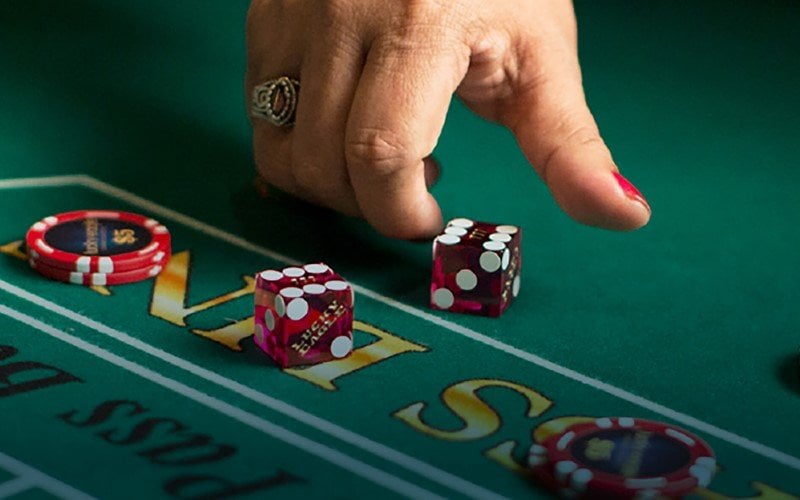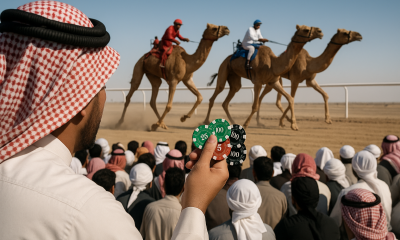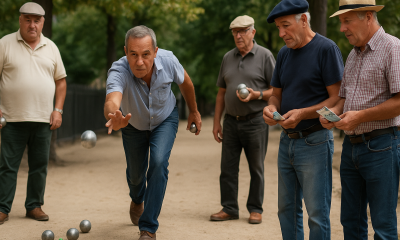around the world
Betting on the Bizarre: Strange Gambling Rituals from Around the World

Tempting risks and taking chances are arguably part of our innate and primal nature. The games that you can find in casinos, whether online or landbased, are the first thing that comes to mind when we talk about gambling. Drawing cards in poker, doubling down in blackjack or playing through hundreds of rounds of slots are all gambling games. But gambling has been around since the dawn of humanity, and there are many other ventures and strange gambling traditions out there.
Even in antiquity and the most ancient civilisations, there were games of chance that integrated elements of gambling. A lot of these games eventually evolved and turned into games we can still find and play today. Then, there are gambling traditions that are far more obscure and niche for today’s global standards. All gambling traditions have their own associated culture and rituals.
Some of these are very commonplace, and even casual gamers will have heard of them. But then there are the rituals that are, simply put, bizarre and must be made up. But they aren’t.
Gambling Games History Around the World
The desire to tempt fate is something that we can date way back to the earliest civilisations. The Sumerians, widely considered the first known civilisation, had their own gambling games. The most reputable of these, the Royal Game of Ur, featured four sided dice and tokens racing across a board. Ancient Egypt had gambling games too, such as Senet or Jackals and Hounds, also using makeshift dice from knucklebones or painted sticks. Gambling in the ancient world was not simply a game to make and lose fortunes. It was also a form of divination, or fortune telling, through which participants could predict destiny.
In the rest Africa, sowing games such as Mancala became more prominent later, and in ancient China, there was a far more diverse scene of games. Dominoes, tile games such as Mahjong, and later playing cards came from China. There were also games of a more improvisational nature, such as Sic Bo or Fan Tan, but China also created the first lottery Keno games. In the centre of the Empire, that is, as in the more nomadic and rural areas the focus was far more on fighting with sticks or betting on animal games or races. The most notable of which are the Mongolian Nadaam games or the Central Asian Buzkashi.

Birth of Our Modern Casino Games
Playing cards made their way to Europe in the middle ages and early Renaissance, giving rise to Tarot, triumps, and the predecessors of baccarat and poker. Many traditional casino games were created in Europe, such as France’s roulette, Hazard (later craps), and many risk taking card games.
Slots came a lot later, and were invented in the New World, the US, in 1894. These one armed bandits were simple, and the gameplay emulated the popular Draw Poker games, with paytables and a need to form specific hands (or, in this case, matching symbols on a payline). The early analogue slots were already big in the 1960s, but by the 1980s, when the majority were electronic, these games spread to the whole world and became the go to for the majority of players.
Then, there are games like poker, which have loads of variants (Stud, Draw, Mixed games, Community Card Poker, etc). These games were adapted even into the 20th century, and are still evolving today with new inventive tournament structures and competitions.
Abstract Gambling Ventures and Games
The modern games we play are all carefully designed by the house to give the casino a profit. They have rules, fixed payouts or paytable structures, and conditions to win or lose. However, there are gambling traditions that predate modern casinos and have historic roots with little to no regulation.
Throwing games, which can be described as a mixture of skill and chance, were fairly commonplace in the pre-house gambling era. Take Sapo, a Peruvian game where you have to throw coins into a toad’s mouth. Not a real toad, a statue, but strange nonetheless. Or, another South American game, of Tejo. The Colombian game of tejo involves players throwing metal discs at explosives from a distance.
Then, there are impromptu, nomadic gambles that test strength, skill and experience. The Maasai tribes of Africa practised jumping games or gambles involving stick fights. In Vietnam, there are time honoured traditions of betting on animal races. Races that involve pigs, cows and even crabs.

Strangest Gambling Rituals
When looking at gambling rituals, especially the far fetched ones, the line between gambling as a fortune telling divination device and a game, becomes quite blurred. There are rituals where people will wear specific colours, don lucky charms, or just wear whatever they were wearing the last time they won. These are rituals that have no basis in logic, and don’t affect the odds in any way whatsoever.
Blowing on dice in a game of craps is another one, as it will not add luck or produce the desired effect. Precautions such as avoiding betting on 7s in craps have a bit more of a realistic foundation. In that it is the most common outcome when throwing a pair of dice, and superstitious craps players avoid it like the plague.
In China, players will avoid the number 4, as it is associated with death. They will also flock to gambling games on the lunar calendar, believing these specific days may produce more fortunate outcomes. Some lottery players swear by their set of lucky numbers, and when the stars align, their fortune will hit. Others change their numbers after every draw, perhaps thinking they are covering more ground that way.
There is a strange Brazilian tradition, tied to the historic Jogo do Bicho animal lottery game, in which betting activity increases when something tragic happens, and the numbers 45 to 48 are involved. These are the Elephant numbers in the game, which has come to symbolize death or bad luck.
Other strange rituals and bizarre gambling habits include:
- Entering the casino’s front door
- Avoiding touching the gaming chips
- Crossing fingers or knocking on wood
- Eating a lucky meal before playing
- Praying or casting lucky spells
There are all kinds of personal and abstract rituals that are practised before, during, or even after playing games of chance. Some players even warm themselves up with a game of Tarot, or some other kind of fortune telling ritual, to test their luck prior to spending any money.
Perceptions of Gambling and Misconceptions Around Rituals
Unfortunately, these rituals and luck inducing charms don’t really change the fact that you are gambling money, and what happens next is anyone’s guess. There are no ways to summon Lady Luck or to fix the outcome of a game. The big wins or losses will happen regardless of whether you are wearing red or bringing your magic gaming horseshoe.
These gambling rituals are harmless, up to the point where you take them too seriously or let them hamper your decision making. The most dangerous superstition is the belief in lucky and unlucky streaks.
Because these are now concrete facts that you are reading, and potentially distorting to satisfy a whim. Some players will habitually look for roulette tables where the outcomes are lopsided. For example, the ball has landed on black 6 times in a row. It is the same as a gamer looking for a baccarat table where the banker bet has won 6 times in a row.
The danger is thinking that the next results are shaped by the previous ones. The roulette ball should land on red. Or the Player Bet should win the next hand of baccarat. The odds in these games never change. Plus, the next roulette spins shouldn’t land more on red to balance out the results.
Probability is not a fixed science in which the results must match the odds on paper. Far from it, variance can come into play and mix up the results, especially in the short run.

Playing Safely and Responsibly
Therefore, the rituals involving lucky or unlucky streaks are extremely dangerous. They warp the way you interpret randomness. It doesn’t matter if the ball lands on red 20 times in a row in roulette. The odds are always the same at the start of every round, and previous results don’t affect the next.
Even in games like slots, where we know there is an RTP and the results of each game are random. The RTP is calculated through hundreds of thousands of simulations of the game. And it is not a guaranteed, fixed return rate. It is a theoretical guideline to give you an inkling of the house edge.
Rituals are a part of gambling, and if they settle a player’s nerves or give them an extra boost of confidence, there is no reason for players to kill the habit. You can count it as added entertainment value. But don’t go down the road of believing that your charms or rituals must work. You might win the jackpot or hit the lottery in the next draw, but that wouldn’t be because of your lucky ritual. It would be a fortunate result of probability that swung in your favor.











